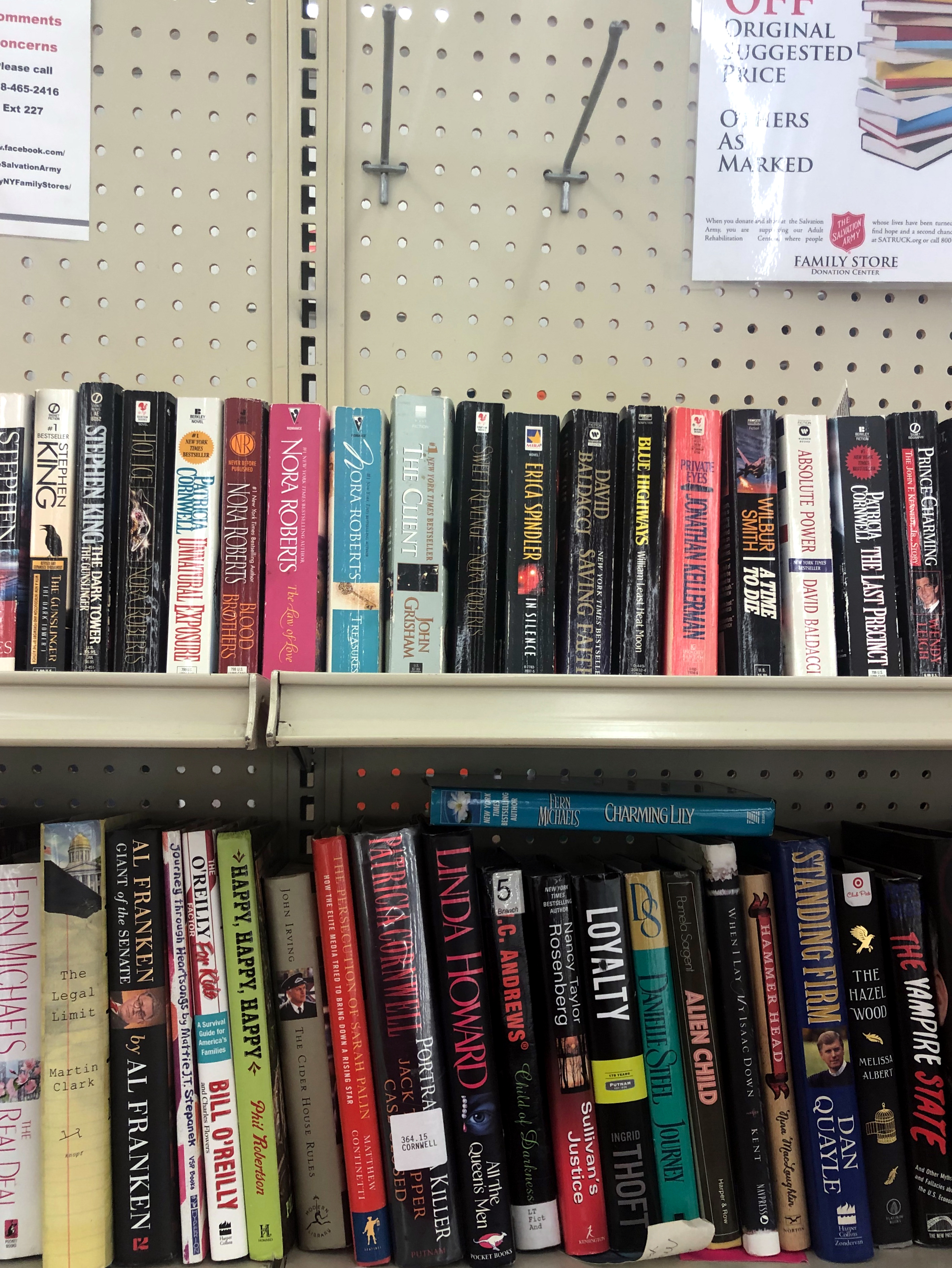By Darren Johnson
Campus News
I treat most books like magazines and newspapers. I like to have several around, and I read a little here and there, rarely cover-to-cover. So I try not to pay full retail for a book, considering the way I misuse them, and look to thrift shops to fill my shelves.
But it’s getting harder to find good used books.

I was in a Salvation Army recently and noticed a sharply dressed, well-groomed man with a Bluetooth earpiece rifling through the books. He had a basket next to him and a barcode scanner. He’d pull each book from the shelf vigorously and probe its back with a blue laser. Any book with any resale value would cause the scanner to beep, and he’d place the book in his basket, surely to resell online. The other books he’d quickly slide back into their slots on the shelf. There must be lots of people with this technology now.
What he put back are the books no one wants anymore: The celebrity tell-alls from past generations – they all are written in the same voice; do they all use the same ghostwriter? The formulaic novels by “brand” authors who somehow pump out several books a year – Patricia Cornwell, Nora Roberts, Stephen King. Books about diets that were once fads – why do they need 270 pages to tell you to eat less carbs? Books from fallen politicos – see the adjacent image: Dan Quayle, Al Franken, Bill O’Reilly. Computer programming books in now-dead languages – Fortran, Pascal, Cobol. Psychological advice that’s summed up in a homespun way – “Chicken Soup for the [Fill in the Blank] Soul,” “Men Are From Mars, Women Are From Venus [or some variation of that title].”
I will leaf through the books and try to imagine how these once sold hundreds of thousands, even millions, of copies. Putting on my English-major cap, I can turn to any page and notice the writing in these books mostly appears to be jibber-jabber. There are lots of clichés, needless description and endless dialogue that goes nowhere. Why did people buy these? Was the PR machine behind these books that good?

One repeat offender, Howard Stern, has two awful books from the last century that keep showing up in these piles. On his radio show, he says he’s written another book – based on his celebrity interviews. Surely, it’s dreck, and a co-writer and a top Manhattan editor did much of the heavy lifting. What a waste of their talent. But Stern says he’s getting booked on all of the top TV shows of our era to promote this thing. Surely it will help his fragile ego – or guilty conscience, over having not really written anything – when he lands at No. 1 on The New York Times Best Seller List when the book finally drops next month.
And, then, as people forget about it, and declutter their homes (and minds), this book, too, will join the dusty piles of forgotten fare at a thrift store near you. The guy with the scanner will show up, and the book won’t make it into his basket.
But not all old books are dumped off at thrift stores. And the man with the scanner does save a few books, passing them on to a new readership via cyberspace. A readership that actually wants these books, and will cherish them.
The lesson I’ve gathered from all of this is, perhaps, it’s not so great to have been bought by many, revered by nobody, ending up in a dusty thrift store purgatory. Maybe it’s better to create something no one will ever want to let go of.
 Darren Johnson studied Writing at Southampton College of LIU. You can hear this as an extended podcast by clicking here. You can buy his new book, “Prof. Mule,” here.
Darren Johnson studied Writing at Southampton College of LIU. You can hear this as an extended podcast by clicking here. You can buy his new book, “Prof. Mule,” here.





Facebook Comments